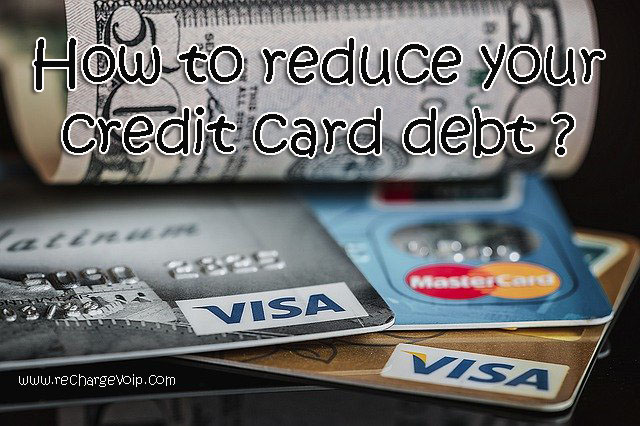 Credit cards are popular for interest-free payments to merchants when buying goods and services. These cards can put the customer in debt, as they can be expensive, if not a convenient cash transfer system. With only five per cent of the repayment amount on the cards, the balance will continue to be used when the balance is turned into a revolving credit, which will result in the borrower being depressed. Here are some ways to help debtors escape credit card usage. This article is describing how to reduce credit card debt and this is the great solutions.
Credit cards are popular for interest-free payments to merchants when buying goods and services. These cards can put the customer in debt, as they can be expensive, if not a convenient cash transfer system. With only five per cent of the repayment amount on the cards, the balance will continue to be used when the balance is turned into a revolving credit, which will result in the borrower being depressed. Here are some ways to help debtors escape credit card usage. This article is describing how to reduce credit card debt and this is the great solutions.
How to reduce credit card debt ?
Balance transfer.
Balance transfer is an option for those who have multiple credit cards to pay back the balance on another card using a credit limit that is not used on one card. You can get 90 days interest-free on repayment of the card utilized by the Balance Transfer Service. If you pay interest at a lower rate than the normal credit card interest rate, the balance transfer amount can be used for repayment in equal installments of 6, 12 and 24 months.
Personal loan.
Generally, personal loans are to be avoided as they charge higher interest rates. However, the credit card can be repaid by taking personal loans that are less than the interest rate on the remaining credit cards. There is also the disadvantage that personal loans are not mandatory for what the loan is used for, and the longer the repayment period.
Top up loans.
Top-up loans are high-yield loans that are based on the value of the collateral in existing repayments. Top-up loans will be granted at the same time as home loan interest rates on home loans that have been borrowed for years. Top-up loans are also eligible for auto loans. It depending on the financial condition of each individual repayment term and affordable credit card loans.
Deposits can be utilized.
While credit card loans offer 30 to 42 percent annual interest rates, investments with an 8 percent annual interest rate are not good. Bank deposits, national savings deposits and mutual funds can be used to pay off debts and pay off credit cards. It is important to note that when the deposits are withdrawn before the expiration date, there are penalties. You can also consider borrowing from traditional life insurance policies with an average capital growth of less than six per cent.
Your credit score should not be bad.
When there is a balance to pay on multiple cards, you should try to pay back the minimum amount first. Repaying a card in full can improve your credit utilization ratio and boost your credit score.

Speak Your Mind